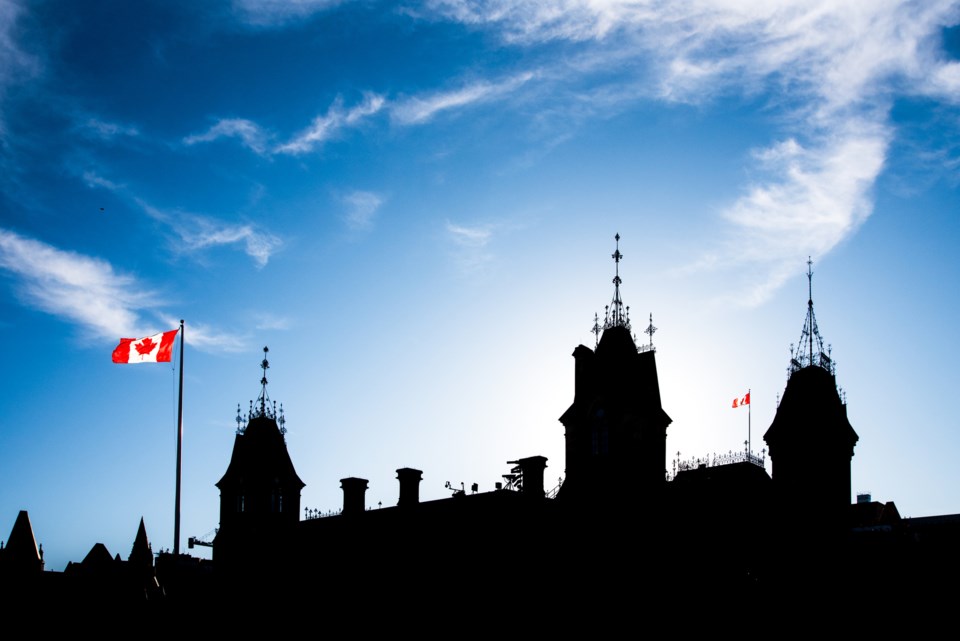Political organizers in sa���ʴ�ý, particularly those with centre-right leanings, have a tendency to look at the United States for inspiration.
In the past decade, Conservative Party of sa���ʴ�ý voters have been more sympathetic than others to the ideas of Republican party presidential candidates, such as Mitt Romney or Donald Trump.
As the Conservatives prepare to choose a new leader, the concept of freedom has been mentioned prominently by contender Pierre Poilievre. There has been a concerted effort to frame these discussions as a uniquely Canadian occurrence.
For Republicans in the United States, advocating for freedom has taken different forms in recent years. The so-called Tea Party gave way to severe criticism of long-time politicians, culminating with complaints about government performance during the COVID-19 pandemic and the ludicrous claim that the 2020 presidential election was stolen from Trump. Canadians are not in the same frame of mind when it comes to freedom and the data shows it.
This month, Research Co. and Glacier Media measured polarization among Canadians and Americans and found immense differences. In the United States, 73 per cent of Americans believe that elected politicians are curbing their freedoms. In sa���ʴ�ý, the proportion is decidedly smaller (39 per cent).
Almost half of Americans (49 per cent) feel they cannot express their political views sometimes because they fear reprisals. Just under a third of Canadians (32 per cent) express the same view.
The notion of a federal government that is “oppressing and controlling” rings true for more than three in five Americans (62 per cent, including 80 per cent of Republicans). Only 41 per cent of Canadians (and 67 per cent of Conservatives) concur.
There is only one statement where the numbers are similar on both sides of the 49th parallel. Slight majorities of Americans (52 per cent) and Canadians (51 per cent) feel their vote in federal elections does not make a difference. This has little to do with the popularity of particular politicians and is directly related to two long-standing systemic features: the Electoral College and the first-past-the-post system.
Canadians are also more respectful of dissenting views. More than three in five Americans believe two aspects of public discourse are worse now than a decade ago: the ability of people to disagree with each other on social media (63 per cent) and the ability of people to disagree with each other in conversation (62 per cent). We also found that 58 per cent of Americans think it is now harder for people to persuade others to look at an issue differently and that 50 per cent have reservations about the ability of people to question stories they learn about in the media.
Canadians are nowhere near this level of pessimism. While almost half (46 per cent) feel social media discourse has deteriorated in the past 10 years, fewer feel the same way about regular conversation (40 per cent), persuading others to analyze matters differently (38 per cent) and reviewing media stories (37 per cent).
The disparities are also staggering on what we argue about. Americans find themselves disagreeing many times with others more often than Canadians, on issues such as federal politics (40 per cent to 24 per cent), immigration (28 per cent to 17 per cent) and morality (25 per cent to 16 per cent). Only when discussing Indigenous and Native American matters are Canadians more contentious (14 per cent to 11 per cent).
Still, no topic has created as much of a stir as COVID-19 mandates and vaccines. More than a third of Americans (36 per cent) and more than a quarter of Canadians (26 per cent) say they have found themselves disagreeing with people many times about how to deal with the pandemic.
In fact, 31 per cent of Canadians and 30 per cent of Americans say they have stopped talking to a person on account of a dispute related to COVID-19 mandates and vaccines. Abandoning a friendship because of pandemic opinions is more common among American Democrats and Canadian Liberals (36 per cent and 33 per cent, respectively) than among American Republicans and Canadian Conservatives (28 per cent and 27 per cent, respectively).
It is evident that Canadians and Americans are not as equally polarized as some people –particularly opportunistic political organizers – would lead us to believe. The notion of a country that is under attack by elected officials may ring true for most Americans, but Canadians are not on the same page. sa���ʴ�ý’s next federal election will probably not be contested on the basis of which prime minister can guarantee the protection of freedoms that, at this particular point, fewer than half of Canadians believe are under threat.
Mario Canseco is president of Research Co.
Results are based on online studies conducted from August 19 to August 21, 2022, among representative samples of 1,000 adults sa���ʴ�ý and the United States. The data has been statistically weighted according to Canadian and U.S. census figures for age, gender and region in each country. The margin of error – which measures sample variability – is plus or minus 3.1 percentage points, 19 times out of 20.

